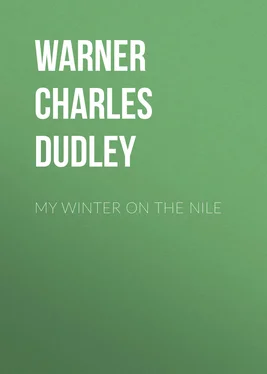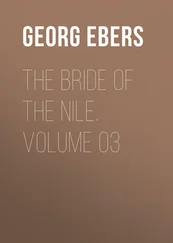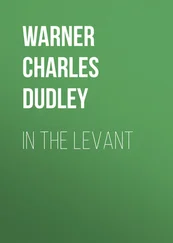Charles Warner - My Winter on the Nile
Здесь есть возможность читать онлайн «Charles Warner - My Winter on the Nile» — ознакомительный отрывок электронной книги совершенно бесплатно, а после прочтения отрывка купить полную версию. В некоторых случаях можно слушать аудио, скачать через торрент в формате fb2 и присутствует краткое содержание. Жанр: Путешествия и география, История, foreign_edu, foreign_antique, foreign_prose, на английском языке. Описание произведения, (предисловие) а так же отзывы посетителей доступны на портале библиотеки ЛибКат.
- Название:My Winter on the Nile
- Автор:
- Жанр:
- Год:неизвестен
- ISBN:нет данных
- Рейтинг книги:5 / 5. Голосов: 1
-
Избранное:Добавить в избранное
- Отзывы:
-
Ваша оценка:
- 100
- 1
- 2
- 3
- 4
- 5
My Winter on the Nile: краткое содержание, описание и аннотация
Предлагаем к чтению аннотацию, описание, краткое содержание или предисловие (зависит от того, что написал сам автор книги «My Winter on the Nile»). Если вы не нашли необходимую информацию о книге — напишите в комментариях, мы постараемся отыскать её.
My Winter on the Nile — читать онлайн ознакомительный отрывок
Ниже представлен текст книги, разбитый по страницам. Система сохранения места последней прочитанной страницы, позволяет с удобством читать онлайн бесплатно книгу «My Winter on the Nile», без необходимости каждый раз заново искать на чём Вы остановились. Поставьте закладку, и сможете в любой момент перейти на страницу, на которой закончили чтение.
Интервал:
Закладка:
The evangelist had come aboard on an important and rather secret mission; to observe the progress of things in Europe; and to publish his observations in a book. Spiritualized as he was, he had no need of any language except the American; he felt the political and religious atmosphere of all the cities he visited without speaking to any one. When he entered a picture gallery, although he knew nothing of pictures, he saw more than any one else. I suppose he saw more than Mr. Ruskin sees. He told me, among other valuable information, that he found Europe not so well prepared for the great movement as America, but that I would be surprised at the number who were in sympathy with it, especially those in high places in society and in government. The Roman Catholic Church was going to pieces; not that he cared any more for this than for the Presbyterian—he, personally, took what was good in any church, but he had got beyond them all; he was now only working for the establishment of the truth, and it was because he had more of the truth than others that he could see further.
He expected that America would be surprised when he published his observations. “I can give you a little idea,” he said, “of how things are working.” This talk was late at night, and by the dim cabin lamp. “When I was in Rome, I went to see the head-man of the Pope. I talked with him over an hour, and I found that he knew all about it!”
“Good gracious! You don’t say so!”
“Yes, sir. And he is in full sympathy. But he dare not say anything. He knows that his church is on its last legs. I told him that I did not care to see the Pope, but if he wanted to meet me, and discuss the infallibility question, I was ready for him.”
“What did the Pope’s head-man say to that?”
“He said that he would see the Pope, and see if he could arrange an interview; and would let me know. I waited a week in Rome, but no notice came. I tell you the Pope don’t dare discuss it.”
“Then he didn’t see you?”
“No, sir. But I wrote him a letter from Naples.”
“Perhaps he won’t answer it.”
“Well, if he doesn’t, that is a confession that he can’t. He leaves the field. That will satisfy me.”
I said I thought he would be satisfied.
The Mediterranean enlarges on acquaintance. On the fourth day we are still without sight of Africa, though the industrious screw brings us nearer every moment. We talk of Carthage, and think we can see the color of the Libyan sand in the yellow clouds at night. It is two o’clock on the morning of December the third, when we make the Pharos of Alexandria, and wait for a pilot.
CHAPTER II.—WITHIN THE PORTALS
EAGERNESS to see Africa brings us on deck at dawn. The low coast is not yet visible. Africa, as we had been taught, lies in heathen darkness. It is the policy of the Egyptian government to make the harbor difficult of access to hostile men-of-war, and we, who are peacefully inclined, cannot come in till daylight, nor then without a pilot.
The day breaks beautifully, and the Pharos is set like a star in the bright streak of the East. Before we can distinguish land, we see the so-called Pompey’s Pillar and the light-house, the palms, the minarets, and the outline of the domes painted on the straw-color of the sky—a dream-like picture. The curtain draws up with Eastern leisure—the sun appears to rise more deliberately in the Orient than elsewhere; the sky grows more brilliant, there are long lines of clouds, golden and crimson, and we seem to be looking miles and miles into an enchanted country. Then ships and boats, a vast number of them, become visible in the harbor, and as the light grows stronger, the city and land lose something of their beauty, but the sky grows more softly fiery till the sun breaks through. The city lies low along the flat coast, and seems at first like a brownish white streak, with fine lines of masts, palm-trees, and minarets above it.
The excitement of the arrival in Alexandria and the novelty of everything connected with the landing can never be repeated. In one moment the Orient flashes upon the bewildered traveler; and though he may travel far and see stranger sights, and penetrate the hollow shell of Eastern mystery, he never will see again at once such a complete contrast to all his previous experience. One strange, unfamiliar form takes the place of another so rapidly that there is no time to fix an impression, and everything is so bizarre that the new-comer has no points of comparison. He is launched into a new world, and has no time to adjust the focus of his observation. For myself, I wished the Orient would stand off a little and stand still so that I could try to comprehend it. But it would not; a revolving kaleidoscope never presented more bewildering figures and colors to a child, than the port of Alexandria to us.
Our first sight of strange dress is that of the pilot and the crew who bring him off—they are Nubians, he is a swarthy Egyptian. “How black they are,” says the Baroness; “I don’t like it.” As the pilot steps on deck, in his white turban, loose robe of cotton, and red slippers, he brings the East with him; we pass into the influence of the Moslem spirit. Coming into the harbor we have pointed out to us the batteries, the palace and harem of the Pasha (more curiosity is felt about a harem than about any other building, except perhaps a lunatic asylum), and the new villas along the curve of the shore. It is difficult to see any ingress, on account of the crowd of shipping.
The anchor is not down before we are surrounded by rowboats, six or eight deep on both sides, with a mob of boatmen and guides, all standing up and shouting at us in all the broken languages of three continents. They are soon up the sides and on deck, black, brown, yellow, in turbans, in tarbooshes, in robes of white, blue, brown, in brilliant waist-shawls, slippered, and bare-legged, bare-footed, half-naked, with little on except a pair of cotton drawers and a red fez, eager, big-eyed, pushing, yelping, gesticulating, seizing hold of passengers and baggage, and fighting for the possession of the traveler’s goods which seem to him about to be shared among a lot of pirates. I saw a dazed traveler start to land, with some of his traveling-bags in one boat, his trunk in a second, and himself in yet a third, and a commissionaire at each arm attempting to drag him into two others. He evidently couldn’t make up his mind, which to take.
We have decided upon our hotel, and ask for the commissionaire of it. He appears. In fact there are twenty or thirty of him. The first one is a tall, persuasive, nearly naked Ethiop, who declares that he is the only Simon Pure, and grasps our handbags. Instantly, a fluent, business-like Alexandrian pushes him aside—“I am the commissionaire ”—and is about to take possession of us. But a dozen others are of like mind, and Babel begins. We rescue our property, and for ten minutes a lively and most amusing altercation goes on as to who is the representative of the hotel. They all look like pirates from the Barbary coast, instead of guardians of peaceful travelers. Quartering an orange, I stand in the center of an interesting group, engaged in the most lively discussion, pushing, howling and fiery gesticulation. The dispute is finally between two:
“I Hotel Europe!”
“I Hotel Europe; he no hotel.”
“He my brother, all same me.”
“He! I never see he before,” with a shrug of the utmost contempt.
As soon as we select one of them, the tumult subsides, the enemies become friends and cordially join in loading our luggage. In the first five minutes of his stay in Egypt the traveler learns that he is to trust and be served by people who haven’t the least idea that lying is not a perfectly legitimate means of attaining any desirable end. And he begins to lose any prejudice he may have in favor of a white complexion and of clothes. In a decent climate he sees how little clothing is needed for comfort, and how much artificial nations are accustomed to put on from false modesty.
Читать дальшеИнтервал:
Закладка:
Похожие книги на «My Winter on the Nile»
Представляем Вашему вниманию похожие книги на «My Winter on the Nile» списком для выбора. Мы отобрали схожую по названию и смыслу литературу в надежде предоставить читателям больше вариантов отыскать новые, интересные, ещё непрочитанные произведения.
Обсуждение, отзывы о книге «My Winter on the Nile» и просто собственные мнения читателей. Оставьте ваши комментарии, напишите, что Вы думаете о произведении, его смысле или главных героях. Укажите что конкретно понравилось, а что нет, и почему Вы так считаете.












